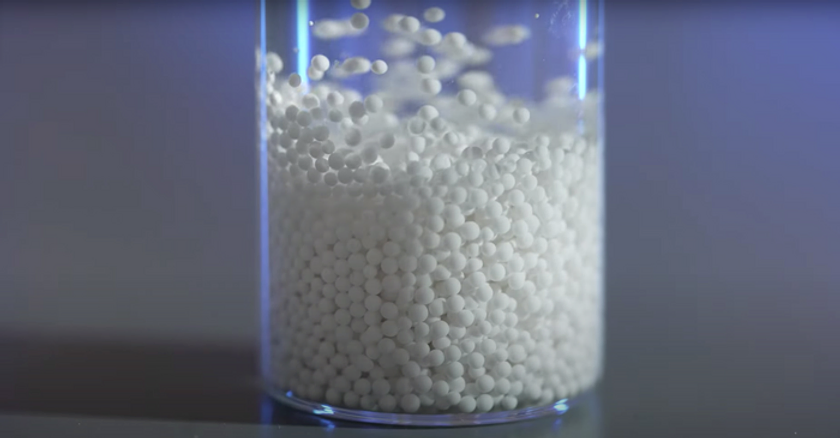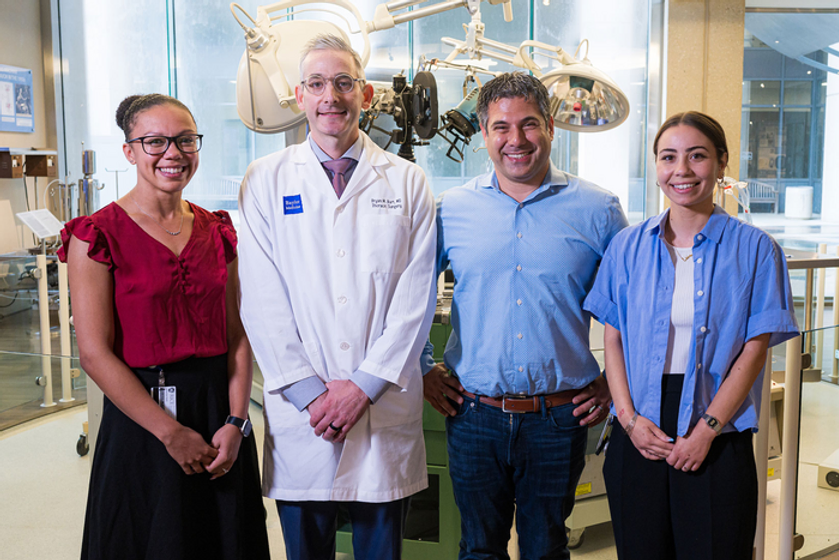Researchers from Rice University and Baylor College of Medicine have developed a new treatment that eliminates advanced-stage mesothelioma tumors in mice within days. This breakthrough combines Rice’s cytokine “drug factory” implants with a checkpoint inhibitor drug, demonstrating significant potential in preclinical trials.
The treatment relies on microscopic drug-producing beads, each no bigger than a pinhead, implanted near tumors. These beads release high doses of interleukin-2 (IL-2), a natural protein that stimulates white blood cells to attack cancer. By continuously supplying IL-2, the therapy enhances the immune system’s ability to recognize and destroy malignant cells.
A recent study published in Clinical Cancer Research highlights the success of this approach, adding to the growing body of evidence supporting the drug-factory technology.
Developed in the lab of Rice bioengineer Omid Veiseh, the technology has already secured FDA approval for clinical trials, which are scheduled to begin this fall in ovarian cancer patients.
Amanda Nash, a graduate student at Rice, played a key role in advancing this technology alongside co-lead author Samira Aghlara-Fotovat. Nash emphasized the broad potential of the implant, stating, “From the beginning, our objective was to develop a platform therapy that can be used for multiple different types of immune system disorders or different types of cancers.”
The cytokine factories consist of tiny alginate beads packed with tens of thousands of genetically engineered cells that produce IL-2. These beads, measuring just 1.5 millimeters across, can be implanted through minimally invasive surgery. By placing them near tumors, the treatment ensures a steady, localized IL-2 supply without systemic toxicity.
In the mesothelioma study, researchers implanted the beads directly beside tumors and within the pleura, the delicate membrane surrounding the lungs and lining the chest cavity. This strategic placement maximized the immune response while limiting side effects often seen with traditional cancer therapies.
Dr. Bryan Burt, professor and chief of Baylor’s Division of Thoracic Surgery, is deeply involved in this research. He notes the challenges of treating malignant pleural mesothelioma, an aggressive cancer of the lung lining that is difficult to remove completely through surgery.
“Often, there is residual disease left behind,” Burt explains. “The treatment of this residual disease with local immunotherapy — delivering high doses of immunotherapy directly to the pleural space — is a very attractive way to treat this disease.”
The collaboration between Rice and Baylor began after Burt and Dr. Ravi Ghanta, a Baylor surgeon and associate professor, learned about the early success of Veiseh’s ovarian cancer animal tests.

These tests, conducted with collaborators at the University of Texas MD Anderson Cancer Center, showed that IL-2-producing beads could eliminate advanced-stage ovarian and colorectal tumors in mice in less than a week. Burt and Ghanta were impressed and curious if the same system could be applied to mesothelioma.
Mesothelioma is a cancer that occurs in the tissue linings surrounding and protecting internal organs, with around 80% of cases linked to prolonged asbestos exposure. Immunotherapy, particularly with drugs known as checkpoint inhibitors, has shown some success in treating this cancer. These inhibitors don’t kill cancer cells directly but instead train the immune system to recognize and destroy them.
In the mesothelioma study, the research team tested the drug factory implants both alone and in combination with a checkpoint inhibitor targeting the PD-1 protein. When used by themselves, the implants eliminated tumors in over 50% of the treated animals.
Remarkably, in the group treated with both the drug factory implants and the PD-1 checkpoint inhibitor, tumors were completely destroyed in all seven mice.
Burt emphasizes the significance of these findings, saying, “It’s very hard to treat mesothelioma tumors in mice, just as it is in humans. Our data show that the regional delivery of these immunotherapy particles to mice with mesothelioma produces very effective treatment responses. I’ve never seen such efficacy in eradicating mesothelioma tumors in mice as we have in this model.”
The study’s results also suggest that combining IL-2-producing implants with anti-PD-1 checkpoint inhibitors might effectively train “memory T cells.” These cells could potentially reactivate the immune system to fight mesothelioma if the cancer returns.

Looking ahead, Veiseh mentions that Avenge Bio, a spinout company, has received FDA clearance to treat ovarian cancer patients using these IL-2 cytokine factories. “In the next couple of months, they expect to begin treating patients with these IL-2 cytokine factories,” Veiseh says.
Additionally, the promising preclinical data from this latest study have laid the groundwork for a second clinical trial aimed at patients with mesothelioma and other lung cancers with pleural metastasis. Veiseh shares that meetings with the FDA have taken place, and the trial is expected to begin in the latter half of 2023.
Beyond cancer research, Veiseh and Ghanta have secured a grant from the American Heart Association to explore the potential of cytokine implants in healing heart injuries caused by heart attacks.
This research could open new avenues for treating heart disease, further demonstrating the versatility and potential of this innovative technology.

